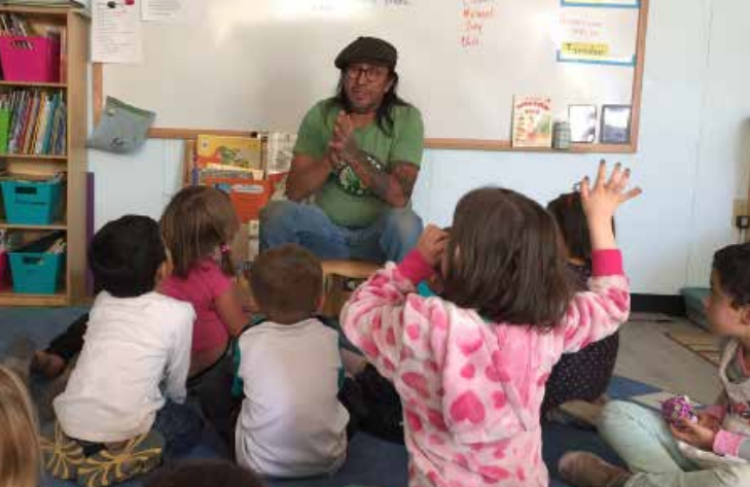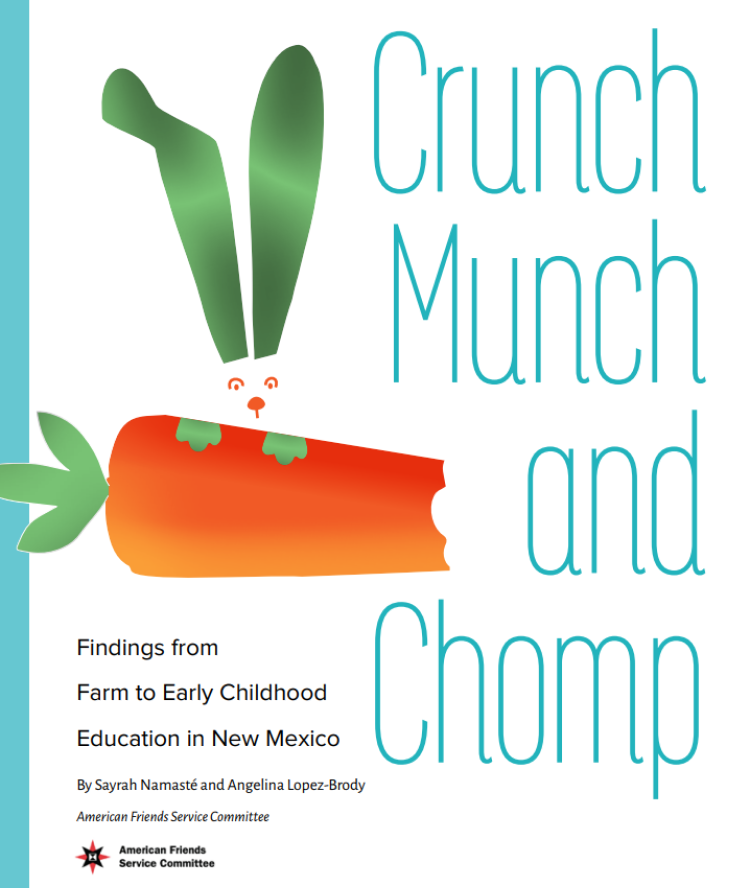
New Mexico farmer Fidel Gonzalez with children AFSC New Mexico / AFSC
When AFSC first set out to develop a Farm to Early Childhood Education (ECE) program, we wanted to support the local farmers we had worked with over many years and to reach young children--such as the low-income children in Head Start—who don’t often get access to healthy, organic local vegetables and fruits.
Research shows that the earlier a child is exposed to healthy foods, the more likely it is that healthy eating habits will be formed. These habits are protective of long-term health and have the potential to help close racial and socioeconomic health disparities.
I had experienced being on government assistance as a young mother through the Women, Infant and Children (WIC) nutrition program, and my own daughter had attended Head Start. My daughter thrived with great teachers and educational classroom activities, and as a parent it was easy to be involved.
In those days the WIC program provided large amounts of cheese and milk to encourage calcium intake, but both my daughter and I are allergic to dairy. And the food assistance could not be used for local or organic food, so I would longingly walk past the beautiful organic produce to find the food listed in my WIC booklet. Many years later, I drew on those personal experiences to help to create a Farm to Early Childhood Education (ECE) program at AFSC.
Since 2015, AFSC’s New Mexico program has managed a Farm to School project that benefits local farmers and students from kindergarten through high school in several districts around the state. I was moved by research done by the W. K. Kellogg Foundation which showed that reaching children ages 0-8 years old is crucial. We began exploring how to reach even younger children in preschool and Head Start with local, organic produce grown on sustainable family farms.
Working together with farmers and early childhood education staff to create a Farm to ECE program was a learning experience for all of us. My colleague Angelina Lopez-Brody and I documented the five years of experience into a short booklet entitled “Crunch, Munch, and Chomp: Findings from Farm to ECE in New Mexico.” We share our insights, photos and stories while highlighting the voices of farmers and teachers. You can download it here.
